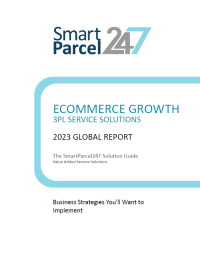As a D2C retailer, providing excellent customer service through a hassle-free refund policy is crucial to attracting and retaining customers.
By taking responsibility for any issues that may arise, businesses can build trust with their customers, leading to more repeat purchases.
However, while a generous return policy can be a great way to win over customers, it also leaves businesses vulnerable to return fraud. Return fraud can take many forms, and D2C businesses need to be aware of the common fraud trends and how to protect their business from them.
Types of Fraud
One example of fraud is curbside pick-up fraud. This can occur when a business has both an online and in-store presence. Fraudsters can exploit both channels to steal from businesses.
While curbside pick-up was manageable when it was not very common, it has become harder to keep track of every customer during the pandemic. This makes it easier for fraudsters to commit fraud by offering multiple payment methods or picking up another customer’s order.
Another type of fraud is friendly fraud, which occurs when a customer claims they never received the product or never ordered it in the first place. This common type of fraud can be difficult to identify and prevent, as there may be no physical evidence of the fraud.
Fake merchandise fraud is a type of fraud that occurs when a customer buys an item, replaces it with something else, and returns it for a refund. This can be especially damaging to a business, as they may not realize they are refunding a fake product until it’s too late.
Have a Clear Return Policy
To protect your business from return fraud, it is essential to have a clear and concise return policy that outlines what customers can and cannot do.
A strict policy that makes it clear that fraudulent behavior will not be tolerated can deter potential fraudsters. Employees should also receive training on how to identify and prevent fraudulent behavior. This includes doing thorough ID and receipt checks for every order, regardless of whether it is in-store or online.
The return policy is often the first thing customers look at when considering a purchase. If the policy is unclear or too restrictive, it can discourage customers from making a purchase altogether.
According to eConsultancy, 67% of consumers check the return policy before making a purchase. This highlights the importance of having a transparent and easy-to-understand policy.
Communicate with Your Customers
Communicating your policy to your customers is a crucial step in preventing return fraud while maintaining satisfied customers.
Make sure the policy is prominently displayed on your website and in your store. This will help customers understand what they can expect if they need to return a product.
You might even want to consider including a FAQ section that addresses common questions and concerns. This will help customers feel more confident in their purchases and reduce the likelihood of fraudulent behavior.
Consider a Return-Tracking System
Another way to protect your business from return fraud is to implement a tracking system for returns. This can help you identify patterns of behavior that may indicate fraudulent activity.
For example, if you notice that one customer is returning a large number of items or consistently claiming that they did not receive a product, it may be a red flag. By tracking returns, you can identify these patterns and take action to prevent further fraud.
Handle Suspicious Returns Carefully
It is also important to have a process in place for handling suspicious returns. If you suspect that a return is fraudulent, do not automatically issue a refund. Instead, investigate the claim thoroughly.
This may involve contacting the customer, reviewing security footage, or consulting with a fraud prevention specialist. By taking the time to investigate suspicious returns, you can protect your business from financial losses and deter fraudulent behavior.
Have a Plan
Be sure to have a plan in place for responding to incidents of fraud. If you do experience return fraud, it is important to act quickly to minimize the damage. This may involve contacting law enforcement, implementing new security measures, or adjusting your return policy.
By responding quickly and effectively, you can reduce the impact of fraudulent activity on your business.
Return fraud is a significant problem that e-commerce businesses need to be aware of. By implementing proactive measures to prevent fraudulent behavior, businesses can protect themselves and their customers.
Enlisting the help of a third-party logistics company like Smart Parcel 24/7 can be beneficial as we will provide your business with a tailored network of carriers and vendors to ensure fast product returns and quick refunds to customers, all the while reducing the risk of return fraud.



